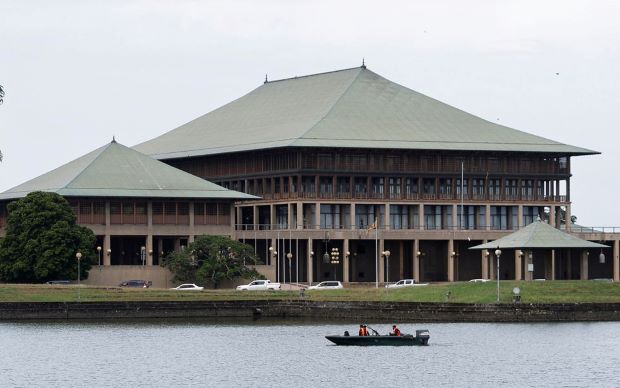Parliament defers debate on 22nd constitutional amendment
COLOMBO – The much-anticipated debate for the adoption of the 22nd Amendment to Sri Lanka’s Constitution aimed at empowering Parliament over the executive president was deferred on Thursday (6) with Prime Minister Dinesh Gunawardena telling the House that the government will have more discussions to seek views of the opposition to make it a “meaningful” exercise.
The parliamentary debate was fixed for Thursday and Friday (7). However, it was speculated that due to disagreements in the ruling Sri Lanka Podujana Peramuna (SLPP) coalition the debate would not take place.
“We have decided to have more discussions to seek views of the opposition as they raised some concerns,” Prime Minister Gunawardena told Parliament.
“We are willing to have talks to make sure that this amendment would be meaningful. At the moment it is a useless exercise”, the main opposition leader Sajith Premadasa said in response.
New dates are yet to be fixed.
Government sources said a section of the ruling coalition was in disagreement with the Amendment. They do not want any pruning of presidential powers.
Some members of the SLPP went public with their opposition to the 22nd Amendment.
Analysts termed the postponement of the debate as a setback for President Ranil Wickremesinghe who had pledged constitutional reforms to appease the demand from the street protesters who ousted his predecessor Gotabaya Rajapaksa.
Wickremesinghe relies on the support from the SLPP parliamentary group for his legislative capacity.
The 22nd Amendment seeks to restore the powers of Parliament which were taken under the executive president by Gotabaya Rajapaksa through the 20th Amendment of 2020.
The opposition and civil society groups remained sceptical of the 22nd Amendment claiming that it does not curtail the powers of the president nor introduce checks and balances in any meaningful manner, contrary to the demands of the protest movement.
The draft bill on the Amendment was approved by the Cabinet and gazetted in August.
Formulated amid the ongoing economic turmoil in the country which also caused a political crisis, the 22nd Amendment is meant to replace the 20th Amendment that had given unfettered powers to ex-President Gotabaya Rajapaksa after abolishing the 19th Amendment, which had empowered Parliament over the presidency.
Rajapaksa was ousted in mid-July through the popular uprising against him for mishandling the country’s economy.
Under the 20th Amendment, the Constitutional Council was converted to a Parliamentary Council just to rubber stamp presidential powers. The 22nd Amendment would also have anti-corruption features, a key demand of the protesters.
The bill must be approved by two-thirds of Sri Lanka’s 225-member Parliament to become law.
-PTI



Comments are closed, but trackbacks and pingbacks are open.